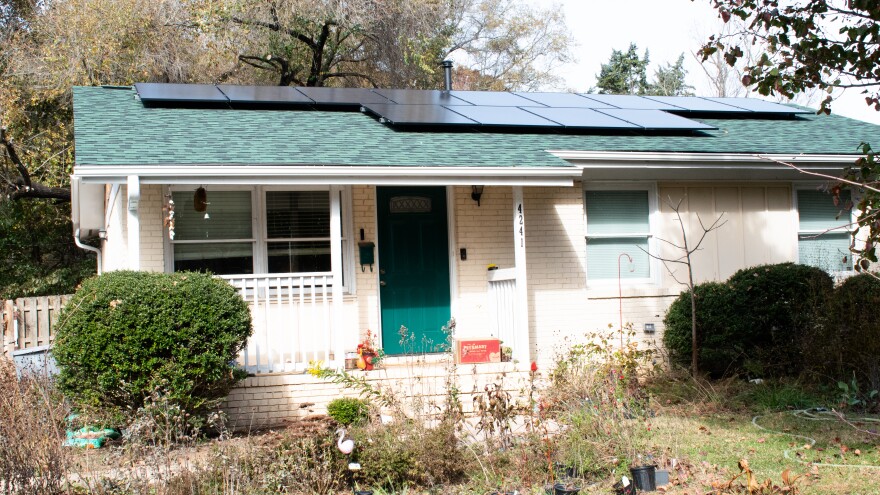Federal solar energy tax credits expire at the end of the year, but most solar installers’ queues have already filled through December. One local program gives Mecklenburg County residents a shot at a discount solar installation to help beat rising costs.
Two hundred eighty-nine Mecklenburg County residents have signed up for Solarize, the county’s solar energy group purchase program.
“The more people that purchase solar at one time, the easier it is for the solar company to make the cost of it go down,” said Heather Bolick, Charlotte’s chief sustainability and resiliency officer.
Registration for Solarize Charlotte-Mecklenburg ends this Friday. Homeowner Hope Lifsey in East Charlotte participated in the program early on. Her 13 solar panels face southeast from her ranch-style home, charging her new Tesla battery.
“I've only had one bill since the solar's been installed, but that bill was like $43, so definitely good,” Lifsey said.
She said she’ll be able to recover the cost of her solar and battery system in eight years.
The five-kilowatt array can charge the battery in about three hours. The battery can, in turn, keep the lights on when the power goes out. Her neighborhood experienced several outages over the summer.
“It's just ridiculous,” Lifsey said. “One day it was out for seven hours, and it was like 98 degrees outside.”
Lifsey’s exasperation gets at a serious problem in Charlotte. The city recently conducted a climate risk assessment, finding that extreme heat — along with severe thunderstorms — poses the biggest climate-related threat to residents. Solar panels on their own wouldn’t solve Lifsey’s problem — they automatically shut off during outages to avoid electrocuting lineworkers. However, the battery system allows her to create a kind of energy island, circulating solar power through her home and battery without backfeeding to the grid.
How long that charge lasts depends on Lifsey. More specifically, it depends on the appliances she uses. She has an app on her phone that allows her to monitor her power production and usage in real time. She’s learned that certain appliances, such as her electric range or dryer, draw a lot of power.
“So, when the power does go out, I know maybe I don’t want to make some tater tots tonight, because I'm living off the battery,” Lifsey said. She glanced down at her phone, “I’m off the grid right now.”
The app showed that her panels were generating 3.3 kilowatts of power. Since her home was only using 0.4 kilowatts, the extra energy flowed into her battery.
“Whatever solar my house and the battery don't need is sold to Duke [Energy],” Lifsey said.


